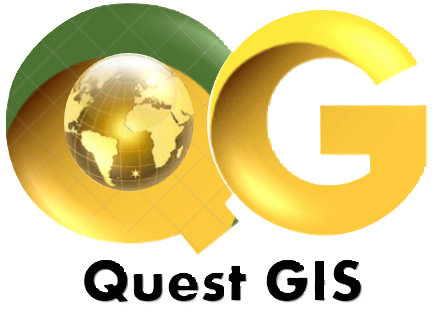About Instructor
Dr. Neha Joshi, a scholar in the field of Geology, has an illustrious academic and professional journey that spans across continents.
She embarked on her academic voyage at Kumaun University in Nainital, Uttarakhand, India, where she earned her master’s degree in Geology. Her relentless pursuit of knowledge led her to successfully defend her PhD degree in the same discipline.
Dr. Joshi served as a Research Fellow for five years at the Institute of Seismological Research in Gandhinagar, Gujarat, India. Her quest for knowledge didn’t stop there. She further enriched her research portfolio by joining the Friedrich Schiller University in Jena, Germany, for her postdoctoral research.
Dr. Joshi’s contributions to the scientific community are noteworthy. She has published more than 10 peer-reviewed research articles of international significance in high impact factor journals, thereby leaving an indelible mark in her field.
Parallel to her academic pursuits, Dr. Joshi has also been actively involved in multiple GIS-based freelancing projects. With over a decade of extensive experience and proficiency in GIS-based software, she has become a sought-after expert in the field.
Driven by her passion for education and teaching, Dr. Joshi founded Quest GIS. Her dedication to sharing knowledge has resulted in the training of over 100 participants in QGIS through virtual mode, thereby shaping the future of many aspiring GIS professionals.
Dr. Neha Joshi’s journey is a testament to her dedication, expertise, and significant contributions to the field of Geology and GIS. Her work continues to inspire and pave the way for future researchers and practitioners.

Dr. Neha Joshi
8+ years of working with GIS software’s.
Postdoctoral researcher (FSU, Germany)
PhD. In Geology (Kumaun University, Nainital)
Dr. Joshi have published 10 papers in her PhD and Postdoctoral research journey.
By reading Dr. Joshi papers, users can deepen their understanding of specific topics. Papers often delve into details that go beyond.
- Papers challenge readers to think critically. Users can analyze research methods, evaluate results, and form their own opinions.
- Encourage users to engage with the content actively and ask questions as they read.
Peer-reviewed research articles of international significance in high impact factor journals-
- Landscape evolution and deduction of surface deformation in the Soan Dun, NW Himalaya, IndiaGC Kothyari, N Joshi, AK Taloor, RS Kandregula, BS Kotlia, CC Pant, .Quaternary international 507, 302-323.
- Reconstruction of active surface deformation in the Rishi Ganga basin, Central Himalaya using PSInSAR: a feedback towards understanding the 7th February 2021 Flash FloodGC Kothyari, N Joshi, AK Taloor, K Malik, R Dumka, SP Sati, YP Sundriyal, Advances in Space Research 69 (4), 1894-1914.
- Holocene tectonic activity along Kachchh Mainland Fault: Impact on late mature Harappan civilization, Kachchh, western IndiaGC Kothyari, P Shirvalkar, RS Kandregula, Y Rawat, RK Dumka, N Joshi., Quaternary international 507, 274-287.
- Drainage conformation and transient response of river system in thrust segmentation of Northwest Himachal Himalaya, IndiaN Joshi, GC Kothyari, CC Pant, Quaternary International 575, 37-50.
- Reanalyzing the geomorphic developments along tectonically active Soan Thrust, NW Himalaya, IndiaGC Kothyari, N Joshi, M Thakur, AK Taloor, V Pathak, Quaternary Science Advances 3, 100017.
- Geomorphometric Appraisal for Seismic Hazard Assessment in the Chenab River Basin of the NW Himalayas, IndiaMGT AH Padder, S Nandy, G Ch Kothyari, C Jani, A Lakhote, RS Kandregula, N., Geotectonics 56 (4), 534-563.
- Identification of active deformation zone associated with the 28th April 2021 Assam earthquake (Mw 6.4) using the PSInSAR time seriesRSK Girish Ch Kothyari, Kapil Malik, Rakesh K Dumka, Sambit Prasanajit Naik, Journal of Applied Geophysics 206, 10481.
- Paleoseismological investigation along the back thrust bounding the northern limb of Janauri Anticline, NW Himalaya, IndiaGC Kothyari, N Joshi, SP Naik, AK Taloor, RS Kandregula, S Nandy, Quaternary Science Advances 12, 100107.
- Polyphase or time-dependent kinematics and quaternary reactivation of thrust bounding Baijnath Klippe: western Kumaun Himalaya, IndiaN Joshi, S Singh, PD Pant, MK Puniya, GC Kothyari, International Journal of Earth Sciences, 108, 455-473.
- Quantitative analysis of Khajjiar and Rewalsar lakes and their surroundings, Himachal Pradesh (India): Remote sensing and GIS-based approachesN Kholia, BS Kotlia, N Joshi, RS Kandregula, GC Kothyari, RK Dumka, Journal of Applied Geophysics 211, 104976.
